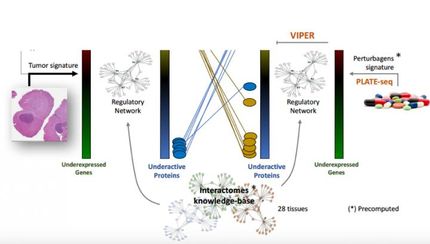Cyclacel Pharmaceuticals presents insights into the mechanisms of its cell cycle inhibitor drugs
Advertisement
Cyclacel Pharmaceuticals, Inc. and independent investigators presented eight posters at the annual meeting of the American Association for Cancer Research (AACR) with preclinical data demonstrating the ability of Cyclacel's cell cycle inhibitors to induce cancer cell death, or apoptosis, by inhibiting key enzymes. Five of these preclinical studies evaluated Cyclacel's CYC116 cell cycle inhibitor. The studies provide additional evidence that CYC116 inhibits Aurora kinases and Vascular Endothelial Growth Factor Receptor-2 tyrosine kinase or VEGFR-2 kinase. Aurora kinases are target proteins that are essential for mitosis or the process by which a cell divides. VEGFR-2 kinase is a validated target promoting angiogenesis or new vessel formation in the vicinity of cancer cells.
"The preclinical data presented at AACR support our understanding that CYC116 has both anti-mitotic and anti-angiogenic activity and help direct our development plan for this drug candidate," said Gregory Reyes, M.D., Ph.D., Senior Vice President Research for Cyclacel Pharmaceuticals. "The ability of CYC116 to target both Aurora and VEGFR2 kinases suggests that it may have potential utility in a range of solid tumors and also hematologic malignancies."
CYC116 is an ATP-competitive, pyrimidine drug that is taken by mouth as a capsule. The drug is a selective agent that potently inhibits the enzymes Aurora kinases and VEGFR-2 kinase at comparable levels with a range of 19 to 69 nanomolar. Median potency of CYC116 in cancer cells is approximately 300 nanomolar. CYC116 has demonstrated a broad spectrum of potent cytotoxic activity against human tumor cell types. Non-clinical efficacy of CYC116 has been demonstrated by the oral route using mouse leukemia models, in which increased survival was observed, and human solid tumor xenograft models, in which reductions in tumor growth were observed. Cancer cell types that appear to be particularly sensitive to CYC116 are leukemia, non-small cell lung cancer and pancreatic cancer.
CYC116 works by affecting the cell cycle progression of cancer cells before they enter mitosis or divide to create daughter cancer cells. The mechanism of action of CYC116 affects cancer cells in several ways. CYC116-treated cells display delayed entry into mitosis; defective polymerization of tubulins, or proteins that make up microtubules which are the target of the taxane drugs; changes in the function of the centrosome, or the cell's microtubule organizing center; and formation of the mitotic spindle, or the highway along which chromosomes and cellular materials are transported from the mother cell to the daughter cells. After cancer cells are treated with CYC116, their spindle checkpoint is inactivated resulting in inhibition of cytokinesis or the process by which a mother cell divides. These defects result in the generation of polyploidy or cells with more than two chromosome sets, multinucleated cells or cells with multiple cores and apoptosis or cancer cell death.





















































